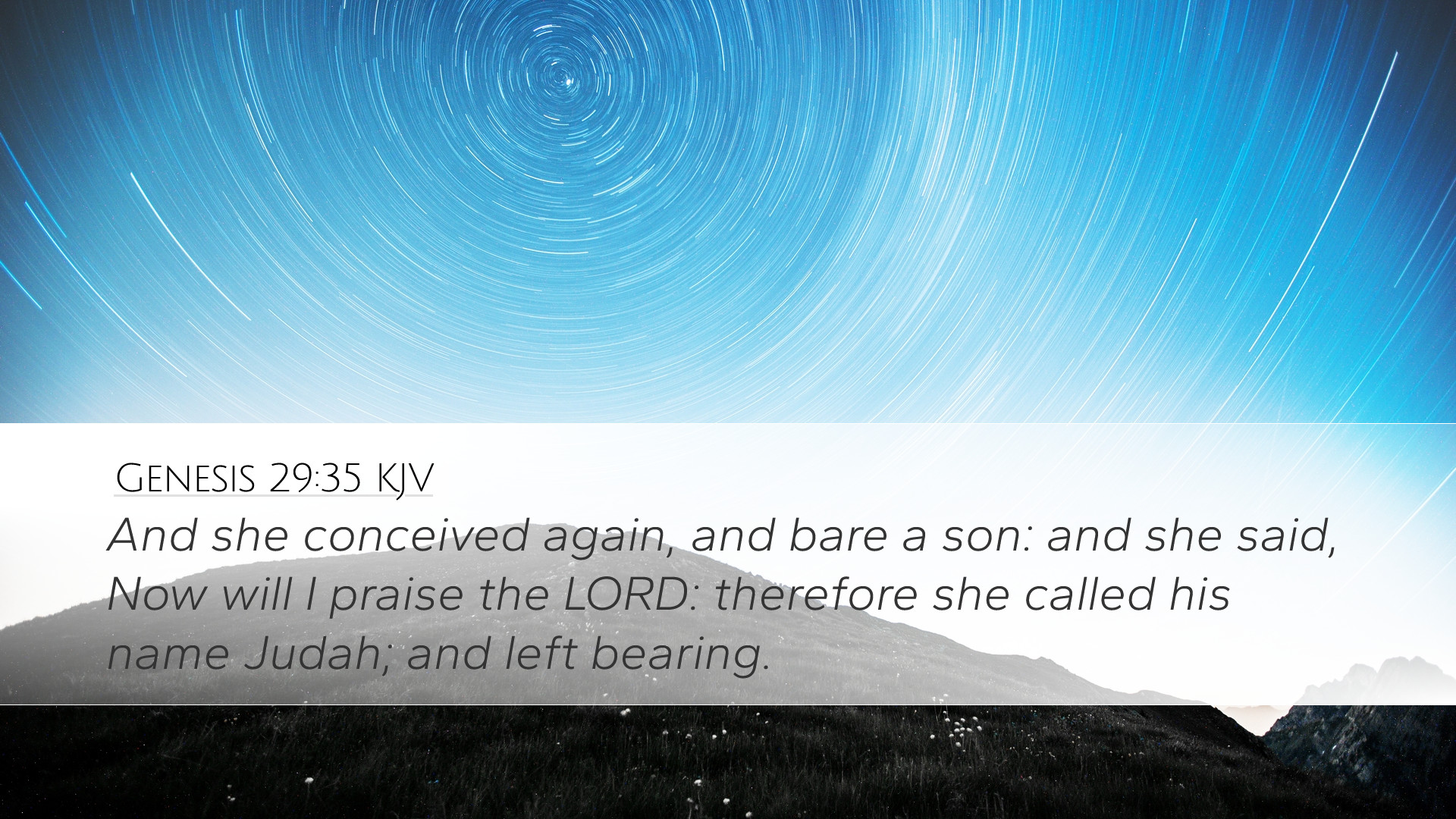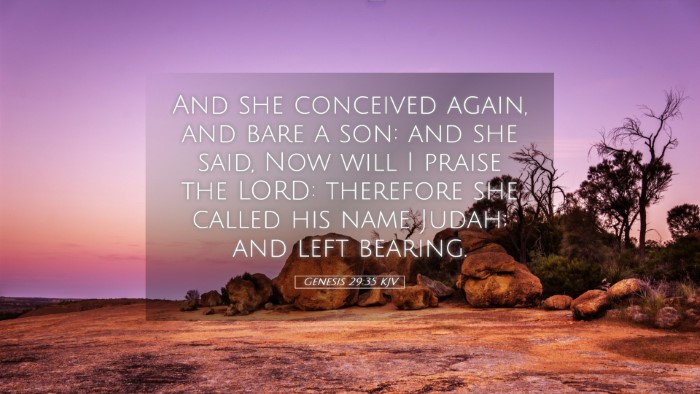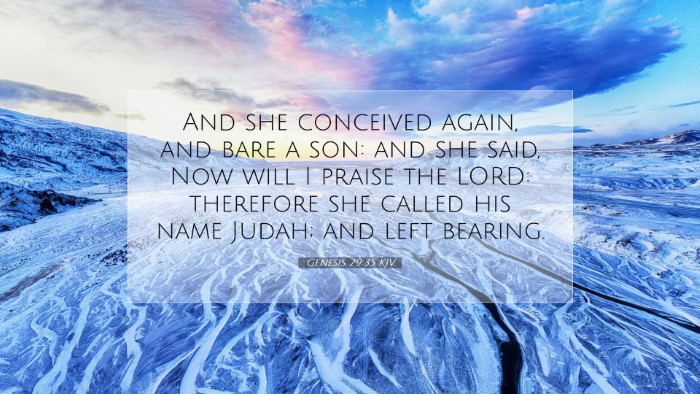Genesis 29:35 Commentary
Genesis 29:35 states:
"And she conceived again, and bare a son; and she said, Now will I praise the LORD: therefore she called his name Judah; and left bearing."
Introduction
The birth of Judah marks a significant point in the narrative of Leah, the unloved wife of Jacob. This verse encapsulates her journey through pain, rivalry, and eventually, spiritual recognition and praise. The naming of her sons not only holds personal significance but also theological implications that contribute to the Messianic lineage, particularly as Judah becomes the tribe from which Jesus descends.
Exegesis of the Verse
In this verse, we see the process of conception and childbirth as a means of hope and recognition for Leah. The repetition of the phrase “she conceived again” signifies the ongoing struggle Leah faces as she attempts to gain the affection of Jacob, contrasted against Rachel, her sister, who is beloved. This creates a compelling narrative surrounding Leah's desire for love and recognition.
Notable Insights from Commentaries
-
Matthew Henry:
Henry emphasizes that Leah’s declaration “Now will I praise the LORD” signifies a pivotal shift in her perspective. Instead of seeking approval from Jacob, she acknowledges the sovereignty of God in her life. This is a profound realization that resonates with believers, emphasizing that divine blessings often surpass human recognition.
-
Albert Barnes:
Barnes notes that Leah’s decision to name her son Judah, which means "praise," reflects her deepening faith. By thanking God for her son, Leah illustrates that her identity and purpose are ultimately rooted in divine acknowledgment rather than human affection. This is a powerful reminder for believers about finding worth in God’s eyes rather than in the eyes of people.
-
Adam Clarke:
Clarke points out that the name "Judah" also signifies leadership and prominence within the family lineage. Judah’s role is pivotal not only in the story of Israel but also in the broader narrative of salvation history, as he becomes the forebear of kings, notably King David and ultimately Jesus. This highlights God’s providence in using seemingly insignificant events for His grand redemptive plan.
Theological Implications
This verse opens the door to several important theological themes:
-
Divine Sovereignty:
The naming of Judah represents God's purpose being fulfilled amid human struggles and conflicts. Leah's acknowledgment of God’s role stresses the importance of divine providence in the lives of individuals.
-
Identity in Christ:
As Leah shifts her focus from Jacob to God, believers today are reminded that true identity is found in relationship with God. Those who are in Christ are called to a life of praise, discovering their worth through God’s eyes.
-
God’s Grace in Human Weakness:
Leah’s life mirrors that of many believers who may feel overlooked or unloved, yet God’s grace operates even in weakness. Leah’s eventual praise signifies transformation and the incredible potency of grace in the believer's life.
Practical Application
The narrative surrounding Leah and Judah challenges readers to find their worth and identity apart from the expectations of others. It impels pastors and spiritual leaders to guide their congregations towards a deeper understanding of God’s love and acceptance, which fosters resilience against societal pressures.
Furthermore, students and scholars are encouraged to delve into the duality of human experience reflected in this verse: the struggle for acknowledgment and the ultimate realization that praise should be directed towards God. This recognition can inform preaching, teaching, and personal devotionals.
Conclusion
Genesis 29:35 presents a transformative moment in Leah’s life, delineating a shift from desperation for human recognition to a profound expression of gratitude towards God. The legacy of Judah, both in Leah's immediate family and in the larger narrative of Redemption, serves as a reminder of God's faithfulness and purpose throughout the scriptures.


